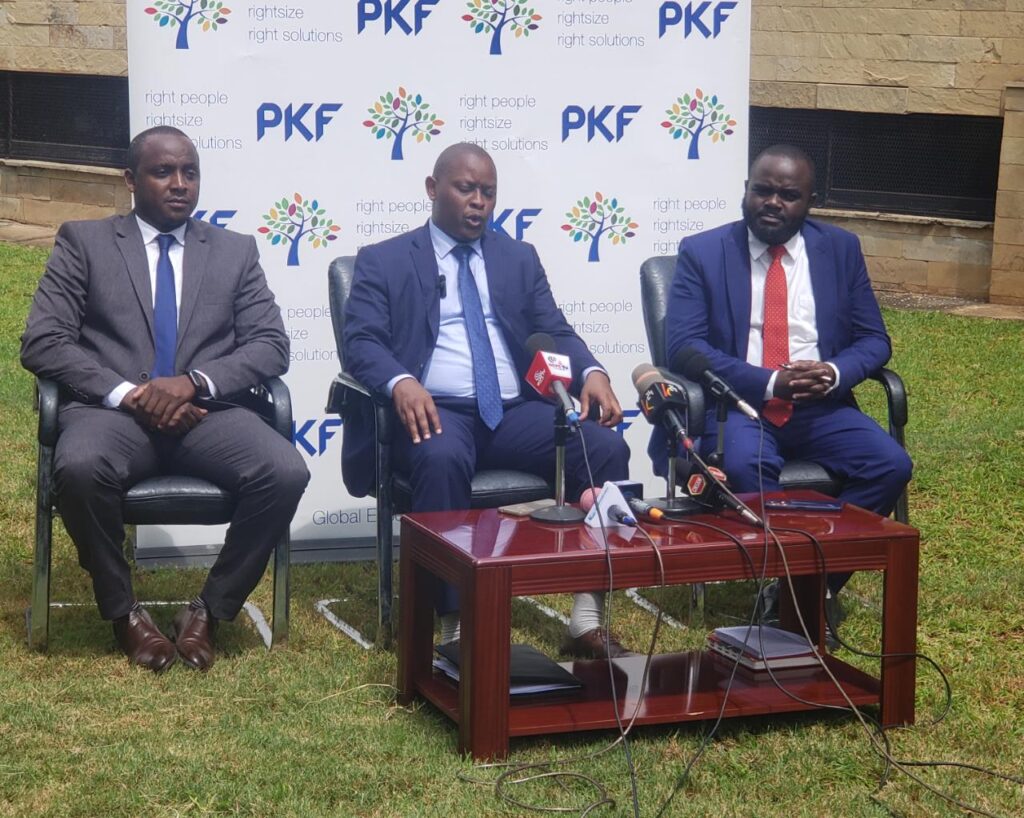PKF Kenya Calls for Consistent Tax Policy to Reduce Complexity and Improve Compliance

PKF Kenya, a regional audit firm, has called on the government to develop a consistent tax policy for all sectors ahead of the Finance Bill 2023, which was tabled in the National Parliament by the leader of the majority, Kimani Ichungwa.
Speaking to the Media PKF tax Director James Muli certain changes are expected by tax payers in the bill including the exemption of LPG from VAT, levies and fast traking of the tax refund process.
“A consistent tax policy would provide businesses with a clear understanding of their tax obligations and enable them to plan and budget accordingly. It would also reduce the risk of unexpected tax liabilities and penalties. Kenyans tax code is very complex and bulky, many stakeholders including manufactures investors as well as SMEs which are required to employ tax planner’s tarrif engeners, lawyer’s and specialist accountants to render professional advice.” PKF tax Director James Muli
James Muli said that a consistent tax policy will enhance compliance levels by reducing the likelihood of disputes between taxpayers and the tax authorities.
“When taxpayers understand the rules, they are more likely to comply with them, which can reduce the administrative burden on tax authorities and improve revenue collection.” He added
James Muli argues that the taxation region in kenya is very complex, even if the taxbase is to be increased it will be difficult to reach a common business in the streets.
“Even if the taxbase is increased how does a common business or a small business on the street remit taxes? They will need acces to internet and Itax platforms and we don’t have a simplified way where all kenyas can do a formal way of declaration and make tax payments without going through the whole complex sytem” he said
There are a couple of wins and losses for ordinary taxpayers if the Bill is enacted into law as it is.
Households who cook using LPG can look forward to a sharp decrease in the price of clean fuel if the proposal to exempt the commodity from 8.0 percent VAT, 3.5 percent import declaration fee and 2.0 percent railway development levy is affected.
Further, taxpayers who have huge tax debts will get a chance to get a waiver of any accruing penalties and interest if they declare principal tax that accrued up to December 31, 2022, and pay the principal tax by June 30, 2024.
Additionally, taxpayers that had declared and paid their principal tax liabilities for up to December 31, 2022, can rest easy as the Kenya Revenue Authority (KRA) will be required to refrain from collecting the interest and penalties from such taxpayers.
Among the losses that ordinary taxpayers may have to contend with if the Bill becomes an Act are the following: VAT on petroleum will increase from 8.0 percent to 16 percent, meaning the price of fuel at the pump will increase.
Ordinary taxpayers will also be affected by the introduction of the mandatory contribution to the National Housing Development Fund
The Finance bill2023 has received opposition from various Kenyans and legislators. It comes after lot of speculations by taxpayers lobbying by business associations and speeches of promise from government officials.
The Finance Bill 2023 has received opposition from various Kenyans and legislators, with the opposition led by former Prime Minister Raila Odinga vowing to rally against the proposed bill in Parliament.
However, the government has promised that the proposed tax changes are necessary to support the country’s development agenda and address revenue shortfalls.
Critics argue that the government needs to take a more balanced approach that considers the needs and concerns of all stakeholders.





